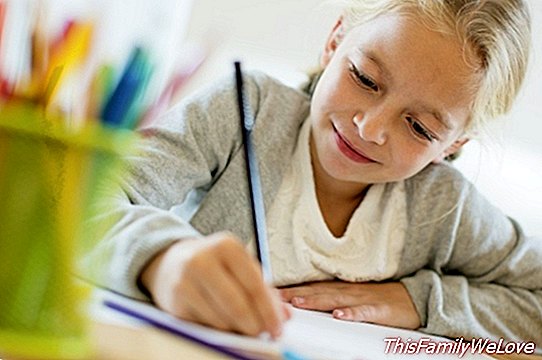The function of school duties: what are they for?

Unlike the tasks that the student performs in the classroom, with intense vigilance and the direction of the teacher, covered by the rest of the classmates, the child is alone before the homework and it has to overcome a series of internal obstacles to overcome the situation: laziness, forgetfulness, fear of the unknown, the ability to think and develop strategies, perseverance ...
Suffice it to remind the previous generations that they shared a table in the living room with several brothers while the grandmother watched the silence from the rocking chair in which she wove. And from those generations have come the great representatives of knowledge in our country
It is not that we look for them on the agenda or, worse, let's ask other parents about homework because we do not trust that our children have found out. This message transferred late after afternoon is absolutely negative in the human formation of the little ones, who will understand that we do not trust them and will feel incapable of successfully carrying out the only task that they are entrusted with: aiming and doing homework.
What are the duties?
In order to understand what we should do as parents before our duties, it is essential to understand the pedagogical sense of the duties. As explained by the UNED Professor Emilio López-Barajas, "the goodness of these tasks in extracurricular hours lies in the ability they have to generate the habit of autonomous work in children.That habit, repeated afternoon from the earliest childhood It will be the one that tomorrow will become a virtue and give rise to an adult capable of facing the challenges and the effort that means to overcome them ".
In this sense, it is very important to take into account that the duties they are "autonomous work". Later, at the end of the Primary stage and during all subsequent courses, the duties will also serve the student to fix concepts. The explanations of the teacher in class allow to carry out a first rational approach to a series of information that the child receives for the first time. But a single visualization does not activate the cerebral mechanisms that make that information permanently fixed in the memory.
In addition, study outside the classroom helps to systematize concepts that in the classes they can expose of little ordered form, in attention to the own difficulties of each explanation. The review of the book or the notes, the search for complementary information and the development of the study materials such as conceptual maps and maps, will end up guaranteeing that this process is complied with.
And finally, with homework, children have the opportunity to develop some fundamental feelings for your personal growth, such as confidence, pride in a job well done, the realization that efforts that seem complicated were met with effort, or the idea that they are capable of managing their time and obligations for themselves.
Alicia Gadea




